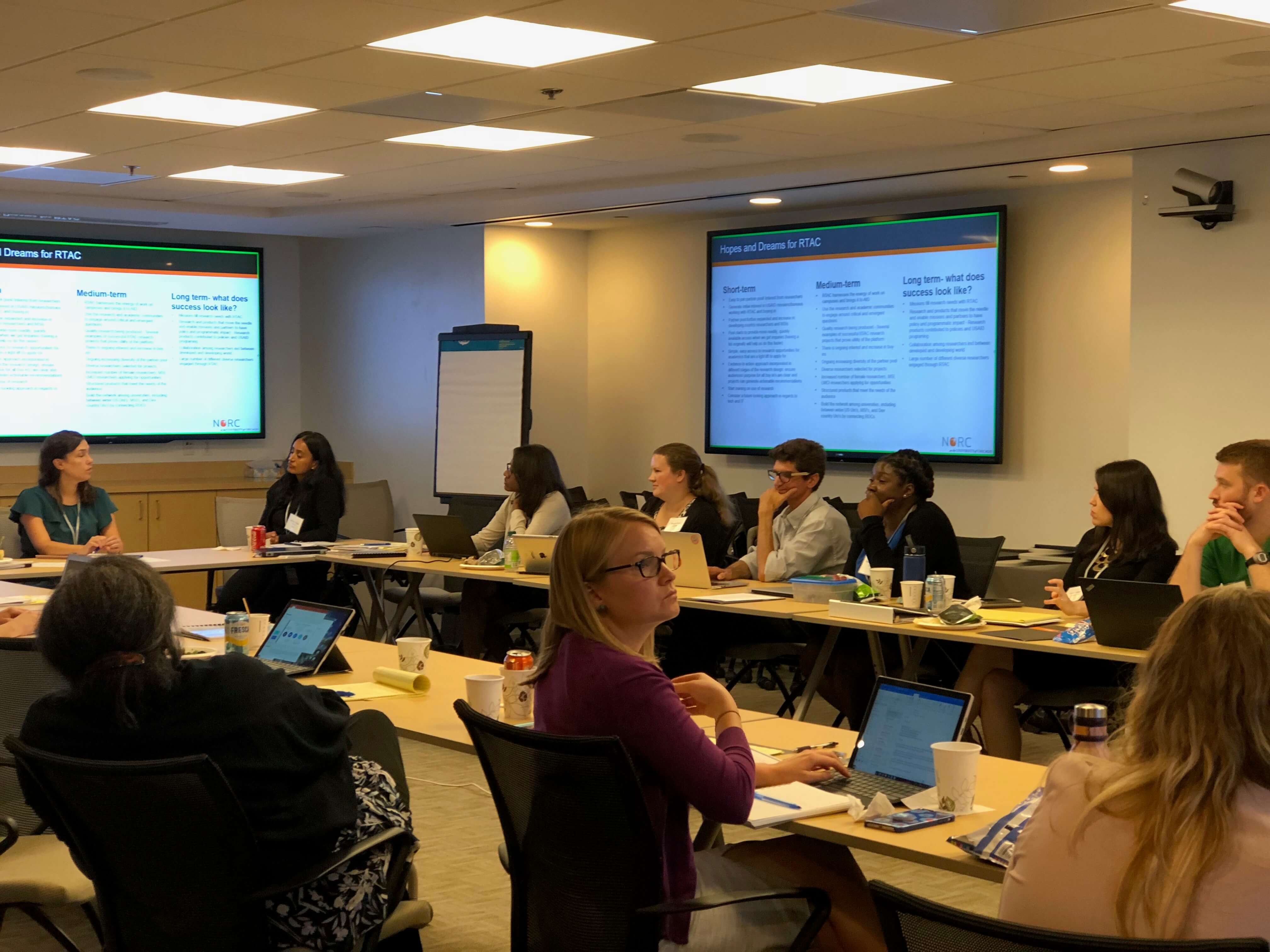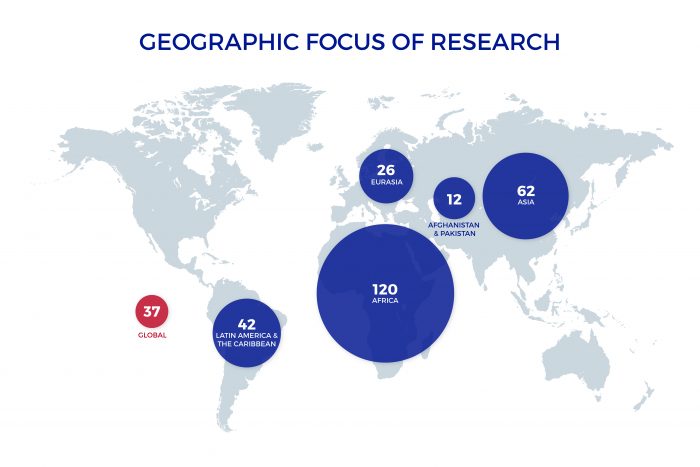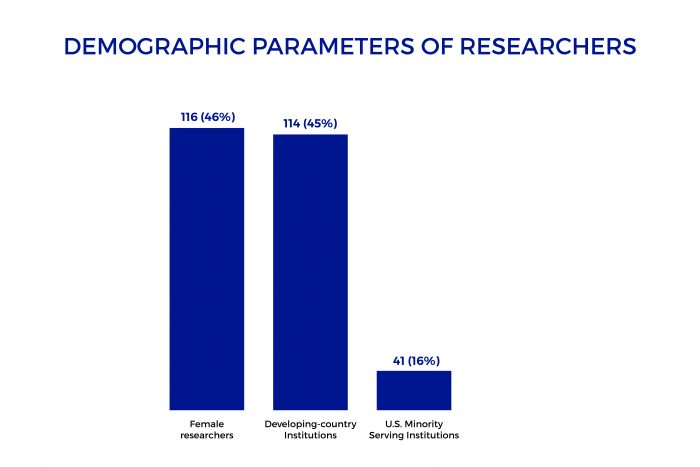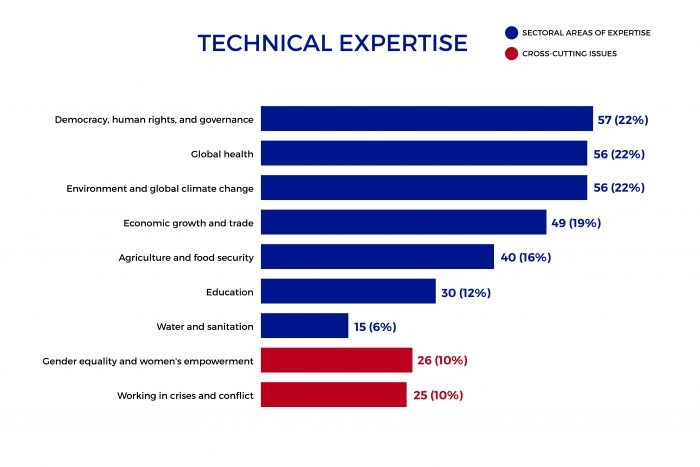
The Research Technical Assistance Center is Up and Running!
RTAC
POSTED November 8, 2018
|General Information
Serving as a strategic resource to the United States Agency for International Development (USAID), the Research Technical Assistance Center (RTAC) leverages the scientific expertise of academic researchers from across the globe to promote evidence-based policies and programs. Through research, specialized training, and short-term technical assistance, RTAC will advance the impact of USAID’s development investments in a variety of sectors worldwide. Launched in July 2018, RTAC is looking forward to building promising relationships.
The Network Already Includes More than 250 Global Academic Researchers.
The initial network of researchers includes faculty, post-doctoral students, graduate students, and lecturers from Africa; Central and Southeast Asia; Eurasia; and Latin America and the Caribbean. The network also features globally recognized academic experts.

“RTAC is an exciting new resource available to USAID’s missions, bureaus, and independent offices to accelerate development impact. This diverse network of academic researchers can help the Agency to promote evidence-based solutions. We look forward to showing how this rapid and on-demand mechanism can increase our responsiveness and our ability to be adaptive in evolving development contexts.”Dr. Ticora V. Jones, Director, Center for Development Research
Female Researchers, Developing-Country Universities, and U.S. Minority Serving Institutions Are Strongly Represented.
RTAC is committed to building and maintaining a diverse and inclusive network. The initial network is both institutionally and individually diverse, including researchers affiliated with U.S. Minority Serving Institutions 1 and developing-country universities as well as a high percentage of female researchers.

The Network includes Experts from a Range of Development Sectors and Cross-cutting Areas.
RTAC’s network brings together subject matter experts and skilled researchers with experience across a range of technical areas, including agriculture and food security; democracy, human rights, and governance; economic growth and trade; education; environment and global climate change; global health; and water and sanitation. Additionally, the network has the capacity to address cross-cutting issues, such as gender equality and women’s empowerment, as well as work in crisis and conflict settings. Ultimately, RTAC is equipped to support research on all the sectors and across all the geographic settings in which USAID works.

“We are thrilled with the interest that RTAC has generated thus far. We look forward to continuing to expand the network, offering USAID a robust pool of academic researchers who can meet the Agency’s short-term research needs on critical development challenges.”Gabriela Alcaraz Velasco, Research Director, RTAC
The Network Plans to Grow.
RTAC’s network of academic researchers will only continue to grow. As the network expands, RTAC will ensure the network stays responsive to USAID’s development priorities and that our researchers have the necessary technical capabilities and availability to quickly mobilize for short-term assignments.
Are you interested in joining? Applications to join the network will be available in Winter 2018/2019. Check back to apply.
